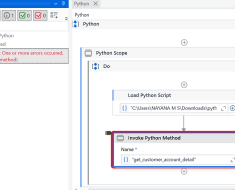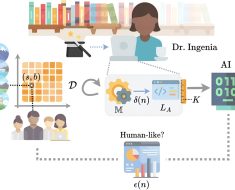
A comprehensive guide to expedite your journey into the exciting world of machine learning engineering
Machine Learning Engineering is a dynamic and rapidly evolving field that combines data science, coding, and domain expertise to develop powerful models. The idea of mastering it in just two months may seem ambitious, but with a structured plan and dedication, significant progress can be made. Learn Machine Learning Engineering.
Week 1-2: Lay the Foundation
Day 1-3: Understanding the Basics
Begin with a solid understanding of the foundational concepts of machine learning. Engage with online courses such as Andrew Ng’s “Machine Learning” on Coursera. Focus on supervised and unsupervised learning, algorithm types, and basic mathematical principles that underpin machine learning algorithms.
Day 4-7: Embrace Python for Machine Learning
Python is the lingua franca of machine learning. Invest time in learning Python fundamentals using platforms like Codecademy or SoloLearn. Familiarize yourself with essential libraries like NumPy and Pandas, which are crucial for data manipulation and analysis.
Week 3-4: Dive into Intermediate Concepts
Day 8-14: Advanced Algorithms and Techniques
Progress to more advanced concepts such as feature engineering, model evaluation, and optimization. Explore platforms like Kaggle, where you can participate in competitions and work with real-world datasets. This hands-on experience will deepen your understanding and hone your skills.
Day 15-21: Explore Model Deployment
Understand how to take your trained models into production. Familiarize yourself with tools like Flask for building APIs and deploying machine learning models. Platforms like Heroku provide a straightforward way to deploy and showcase your models to the world.
Week 5-6: Explore Specialized Areas
Day 22-28: Natural Language Processing (NLP) Deep Dive
Specialize in NLP, a critical aspect of machine learning. Utilize resources like the “Natural Language Processing in Python” course on DataCamp or the Natural Language Processing Specialization on Coursera. Working on text-based projects allows you to use your knowledge.
Day 29-35: Computer Vision Exploration
Delve into Computer Vision, another specialized domain. The “Introduction to Computer Vision” course on Udacity is a great starting point. Practice by implementing image classification models using frameworks like TensorFlow or PyTorch.
Week 7: Get Hands-On with Projects
Day 36-42: Project Immersion
Apply your knowledge by working on real-world projects. Platforms like GitHub offer a plethora of open-source machine learning projects. Contribute to current projects or start your own. This practical experience will be invaluable when showcasing your skills to potential employers.
Week 8: Master Tools and Frameworks
Day 43-49: TensorFlow and PyTorch Mastery
Become proficient in popular machine learning frameworks like TensorFlow and PyTorch. These tools are widely used for building and training deep learning models. Explore their documentation and tutorials to gain a comprehensive understanding.
Day 50-56: Cloud Services and Model Deployment
Learn about cloud-based services for machine learning, such as Google Cloud AI Platform or AWS SageMaker. Understand the process of deploying and scaling machine learning models in a production environment. This knowledge is crucial for real-world applications.
Source: Learn Machine Learning Engineering



